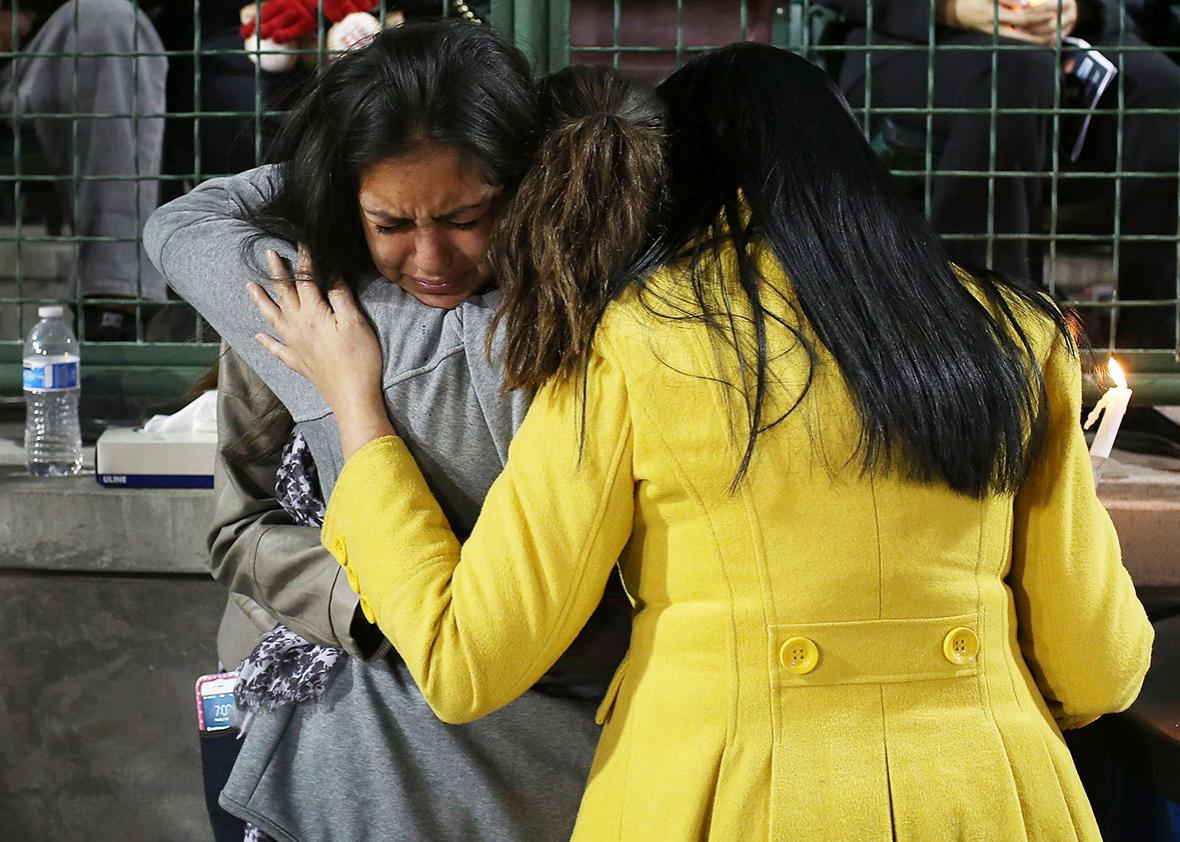Can you even call it Groundhog Day when we are beginning to approach two mass shootings a day? Have we come to the place where it’s become Groundhog Morning and Groundhog Afternoon? It seems we used to have weeks or months to recover from a Columbine or an Aurora. More and more we have days or hours, and whether we are coping or going slowly numb is still open to debate.
They happen so fast now that there isn’t even time to have the gun control argument in full; we have it in a barrage of angry tweets and then brace for the next one. It all plays out like a familiar haiku:
My hopes and prayers
Too soon, mental health, too soon
Hopes and prayers, guns, guns
Publications recycle the same “enough is enough” article they published last October, and last February, and also the December before. Many of those articles posit, hopefully, that perhaps this time things will change because Sandy Hook, or Aurora, or Colorado Springs, or Oregon.
We get angry. We call our members of Congress. The same intern in the same suit logs the same message. We feel numb. We go to vigils. We stop going to vigils. We make plans to organize. We organize. We try to explain to our kids. We try to figure out what our kids are thinking. They play shooting games. We make soup.
But really it isn’t Groundhog Hour. It’s not really the same thing over and over again because with each shooting more and more guns are purchased. And our gun laws are weaker than ever.
Legislation that was unobjectionable to the George W. Bush administration—laws that would simply prevent people on the FBI’s consolidated terrorist watch list from buying guns or explosives—are voted down in Congress. A physician, running for president, say, “I never saw a body with bullet holes that was more devastating than taking the right to arm ourselves away.” And 185,345 background checks to buy guns were processed on Black Friday alone—a new record. According to the FBI, “The previous high for receipts were the 177,170 received on 12/21/2012—a week after Adam Lanza killed 26 people at Sandy Hook Elementary School in Newtown, Conn.” Mass killings turn out to be extremely good news for the gun industry.
Beyond the frequency and the brutality and the futility of effecting changes, maybe this is a statistic worth noting. As Joshua Holland writes: “Perhaps the most frightening thing we know about gun violence comes from a study conducted by researchers at Duke, Harvard, and Columbia that was published earlier this year in the journal Behavioral Sciences and the Law. It found that almost one in 10 Americans who have access to guns are also prone to impulsive outbursts of rage. Among this group are almost 4 million people who carry their guns around in public and say they ‘have tantrums or angry outbursts,’ ‘get so angry [that they] break or smash things’ and lose their temper and ‘get into physical fights.’ ” This is not about mental illness; it’s about anger, violence, and fear. And in no small part because of mass shootings, we become more angry, violent, and more fearful all the time.
And while we read the same articles, and make the same phone calls, and buy more guns, and grow more frightened, one other thing does change. Our schools go into lockdown. More and more. Thursday in Denver (“reports … of an armed person at the school”). Thursday in Pleasant Grove, Utah (“after a student reported another student with a gun”). Thursday in Chicago. Thursday in Palm Beach, Florida. Thursday in Dallas. Thursday in Savannah, Georgia. Thursday (and two other days this week) in Cambridge, Massachusetts. Friday in Philadelphia. Wait, what? Kids bring guns to schools? In what universe does this surprise us? For our children, a world of daily shootings and daily lockdowns is the way they will have been raised. For them, as a friend who lives near one of Thursday’s lockdowns puts it, “It’s not if. It’s when.”
Are we changing with each of these mass shootings? How could we not be?
Read more of Slate’s coverage of the San Bernardino shooting.
